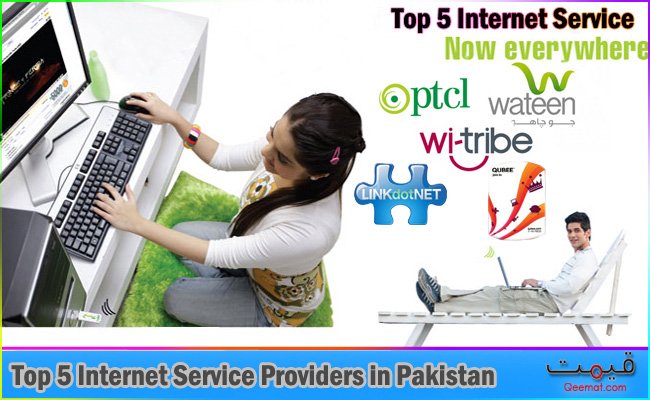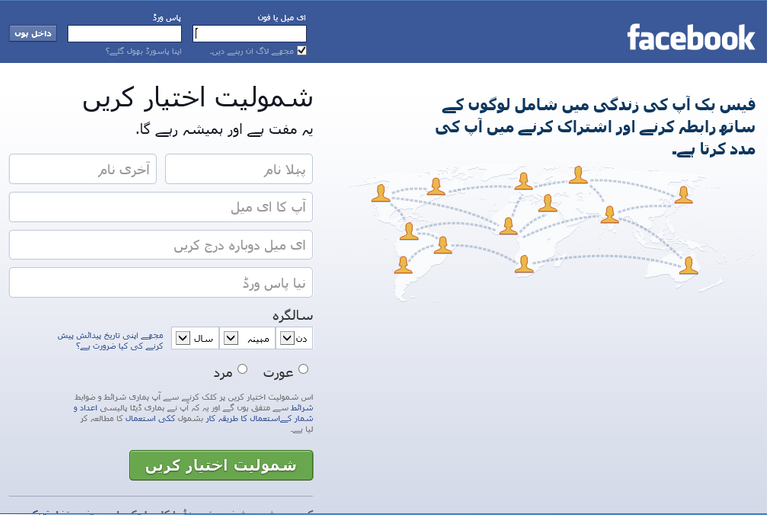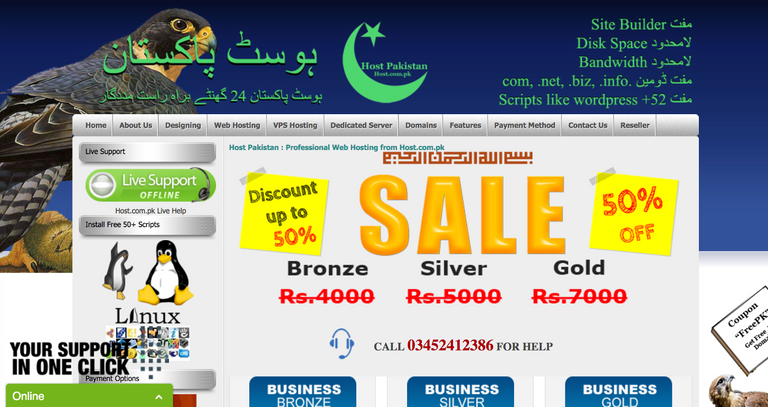Getting Connected
Officially, the Internet in Pakistan was introduced in the early 90s (1992) when the first dial-up email service was introduced in Lahore by a company named ‘ImranNet’. After that, various funded and fully sustainable projects were continuously supported in order to ease email services as much as possible for the general public’s use until 1995, when an entrepreneurial Internet venture, ‘Digitom’, introduced Internet service in Karachi. Since that day, the Internet is quickly growing.
Though Digicom was the first to introduce Internet services, many other names such as Paknet, BrainNet, Comsats and others also shared their part in starting out Internet services and the development of its industry in Pakistan. The same year when first Internet service in Karachi was introduced the Paknet, PTCL’s subsidiary branch, started its text based dial-up Internet services in three major cities of Pakistan – Lahore, Islamabad, and Karachi. A year later in 1996, it started its graphic-based dial-up Internet services in these three cities.
However, these services were very slow in speed and used to take ages for something to upload or download. Many companies launched their ISPs with evolving speeds and people continued to use expensive Internet in kbps until 2001, when a company named Micronet Broadband brought the revolution of broadband Internet to Pakistan and WiMax services was launched by famous and widely popular companies Wateen, Qbee and Wi-Tribe.
Today, Pakistan has this pleasure of enjoying speedy Internet from various speed ranges of broadband to 3G, and also 4G, which is evolving at amazing speeds. Fortunately, the ICT industry has been one of the most growing and expanding industries in Pakistan during the last few years.

The Internet industry in Pakistan is flourishing at an amazing speed day-by-day. As the E-World grew and expanded, the number of people who were conducting business online also increased. In 2015, the estimated number of users online in Pakistan has reached 22 million which has led to greater e-business opportunities. The fact that Pakistan has surpassed so many other countries in the region when it comes to the quantity of Internet users is amazing and shows the rapid development of the ICT industry in the country. This is good news for people who have Internet related businesses. More users online means more Internet marketing and a larger target audience.
Due to the advent of globally famous freelancing sites such as Upwork, Freelancing and Fiverr, many software houses and IT companies have come into existence which are providing services in web designing and development, digital marketing, programming, Android and iOS app development and various other niches. Freelancing has contributed crucially to the growth of the IT sector in Pakistan. Pakistani freelancers are now equally famous for their services as well as Indian, American, and other freelancers in the world. Countless shopkeepers, vendors, local ventures, and people, who didn’t have any idea about the Internet noticed a clear increase in their sales since the time they developed an online presence.
This rapid development is including the usage of Internet in Urdu language as well. This has encouraged the Urdu-speaking audience to make use of the Internet as well as it increased the target audience for the people doing business online and are concerned with online population. Many websites, such as those for news channels, are facilitating their audience with an Urdu version of their sites. Also, Google and Facebook have started to provide their services in Urdu, which is even more fascinating for people living in Pakistan.

Today, exposure to the Internet has brought a drastic and far-reaching change in the lives of people of Pakistan. But the increasing numbers of taxes applied by the government, the poor downloading speed, slow web-browsing, and poor installments of wires are the main reasons why consumers cannot realize their dream of having inexpensive and speedy Internet. Pakistan is yet to experience an opportunity to provide both high-speed and affordable Internet access to its masses.
The infrastructure that provides Pakistan Internet is based on underwater submarine cables and whenever there’s a fault in these cables, the whole country is affected which ultimately affects business online. This demonstrates the need for stronger management of the Internet’s infrastructure because faster and more available Internet usage are the most important elements regarding good quality Internet. Currently, the Internet infrastructure is not meeting the final expectations of the masses.
There’s a downloading and uploading speed limit on most of the packages of broadband, 3G, 4G, EVO, and all sorts of Internet. Even unlimited broadband packages have data limits. But various effective initiatives are being taken to maximize the data limit and minimize the cost, and to help Pakistan start shifting towards a digital economy. Even now in most of the sectors of Pakistani economy, the Internet has replaced all the old manual methods. However, there are still some remote places where Internet access is almost nonexistent. According to Pakistan’s Internet stats, currently, there are 15 million mobile Internet users, 2 million broadband subscribers and the mobile device penetration is 19.78% whereas 80.24% are of desktop. But sadly, the frustration of crashed networks and poor downloading speeds is still prevalent.
From dial-up connections to speedy wireless Internet, the E-world is expanding day-by-day in parallel with the increasing future challenges and opportunities. Recently, high-speed broadband satellite Internet services have also been introduced in Pakistan by an Abu Dhabi-based company, Yahsat, which has invested millions of dollars in the domestic business. This is a big step in revolutionizing the availability of speedy Internet in Pakistan. Undoubtedly, steps like these have captured the attention of many foreign investors and prominent incubators in Pakistani markets and have given so many young entrepreneurs a chance to boost their own startups especially in the last couple of years. For this, Pakistan needs to increase its per capita average Internet connectivity, which is quite low compared to its growing ICT industry. However, with the introduction of 3G and 4G, Internet connectivity seems to be increasing at a rapid scale in future. The challenge for Pakistan is to have favorable and effective government laws regulating the ICT industry and to regulate laws with the neighboring countries in order to pave the way for digital economic future and to maximize the opportunities for the masses in Pakistan.
Web Hosting Services
The first official web hosting service was introduced in Pakistan in the year 1996 by a company named COMSATS Internet Services (CIS). Back in that time, there were only a handful of reliable companies providing such services. Today, getting a domain is convenient, easy to find, and cheap. You can find a lot of authentic web hosting and domain provider companies from which to pick. Like in the rest of the individual ICT industry sectors, the web hosting and domain registrar business is developing rapidly and today, there are various niches of hosting services available in Pakistan including WordPress hosting, cloud hosting, reseller hosting, VPS hosting, dedicated hosting, Cpanel web hosting, and plesk web hosting.

Currently, almost all web hosting companies in Pakistan are providing shared web-hosting. They provide bandwidth, tech support, and resources by renting services from international hosting companies. There is not even a single company in Pakistan that currently owns its hosting services. No doubt, the features, ease of use, tech support and hosting packages are available and reliable.
With the goal of supporting and facilitating the Internet business in Pakistan, the sole current challenge in the Pakistani web hosting sector is to be able to own local hosting services. Residents and businesses of Pakistan are still enjoying relatively affordable hosting and the rate of acceleration for the Internet industry in Pakistan and its entry into a competitive information technology era are quickly progressing. The time is near when Pakistan will need its own hosting services at more affordable prices rather than third party rental hosting services depending on the fluctuating value of foreign currencies. To improve the skills among Internet users and professionals, specialized courses like the Pakistan School of Internet Governance have been established to spread knowledge regarding the registry and registrar business, ICANN and Internet policy on a national and international level.
Coming next: Selling Online – The E-Commerce Experience
Previous postings of this report:
Part 1: Introduction
Part 2: The Big Four of Pakistani Telecommunication
Part 3: New Technologies and Challenges for the Market
Part 4: Pakistan Going Mobile
Part 5: The Mobile Device Industry